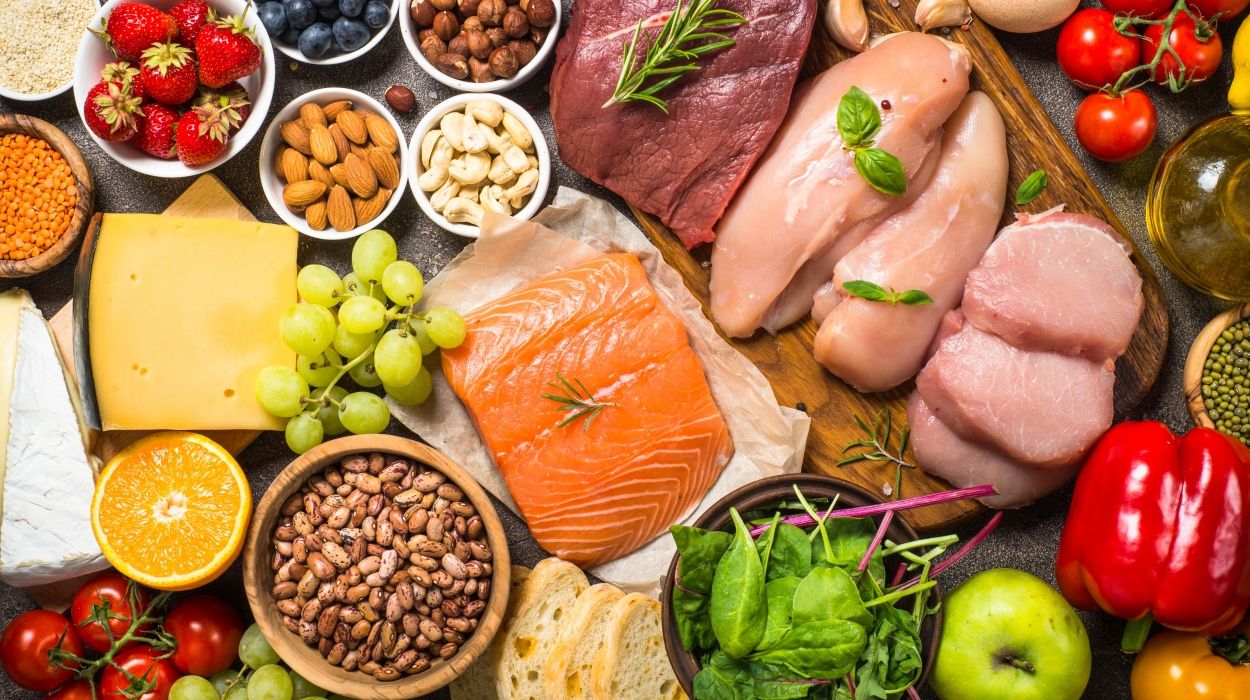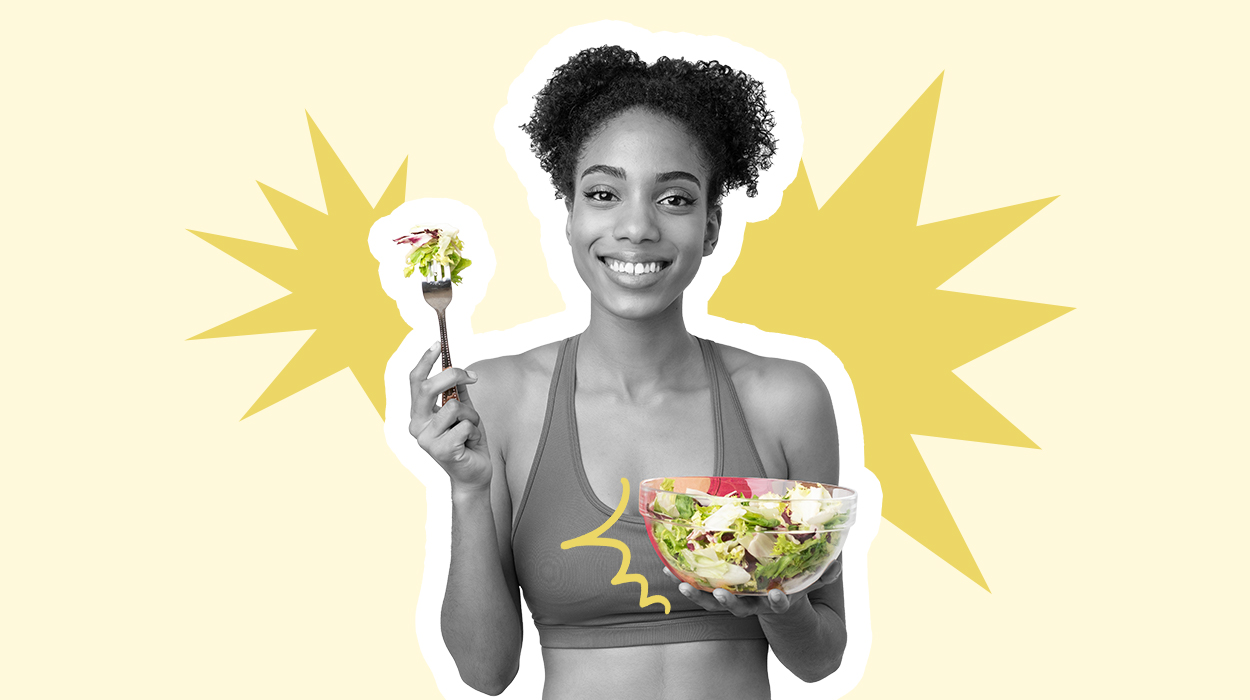Athletes often consider switching to the keto diet for weight loss and enhanced physical performance. Compared to other popular diets like carnivore, vegan, low carb, or high protein, keto offers superior benefits for athletes.
The keto diet works by placing the body into a metabolic state of ketosis,[1] which allows the body to burn fat for energy instead of glucose. The primary benefits of this diet include significant body fat loss and improved energy levels.
For these reasons, the ketogenic diet is one of the top choices for endurance athletes, but it’s not perfect. In this post, we’ll be looking over the advantages and limitations of the keto diet for athletes to help you decide if it’s right for you.
Keto Diet For Athletes: 4 Superb Health Benefits
There are many benefits of consuming a ketogenic diet. Here are some of the changes athletes can expect to see a few weeks into their keto diet journey.
- Boost your sports performance.
- Lose weight quickly.
- Help maintain muscle mass.
- Improve mood and appetite.
Advantages Of Keto Diet For Athletes
Can Boost Your Performance During Endurance Sports
The main benefit that comes with switching to a keto diet, especially for endurance athletes, is it gives them access to a deeper energy store than glucose. Due to their substantial body fat stores, they can keep going for longer.
Additionally, the low-carb diet also increases fat oxidation levels in endurance performers, which means they can burn fat faster than they can empty their glycogen stores. This allows for a comparable and sometimes better performance than a regular high-carb diet.
Lose Weight Quickly

In the last 15 years, the Keto diet has become the go-to dietary choice for new and experienced athletes looking to lose body weight fast. Since the diet favors fats as the primary energy source, it becomes easier to burn and consistently lose weight as long as you are eating under your daily calorie maintenance level.
It also outperforms[2] other low-fat weight loss diets that are far more restrictive and demanding than it. It provides a sustainable approach to weight loss for athletes while keeping their carbohydrate intake in check.
Help Maintain Muscle Mass
Unlike other weight loss diets, keto helps athletes regulate and maintain their muscle mass[3] while they lose weight. This means that athletes in more physically demanding sports like the long jump and bodybuilding can perform at their best all year round.
Better Mood And Reduced Hunger
Another common benefit of a ketogenic diet is reduced hunger levels and a better mood, which is essential to peak athletic performance. Athletes who experience less hunger and fewer mood swings have an easier time following their diet and fewer psychological blocks.
Keto Diet: What Is It?
The keto diet is a low-carbohydrate (carb), low-protein, high-fat diet known for its rapid weight loss. Introduced in the 1920s[4] to treat epilepsy, the keto diet is a modern solution to the current obesity crisis and offers performance benefits to athletes.
The goal of the keto diet is to improve body composition and to induce ketosis, a metabolic state where the body burns fat for energy instead of carbohydrates. This is achieved by swapping carbohydrates for healthy high-fat foods such as walnuts and Greek yogurt.
During ketosis, the body starts breaking down fat in the liver to produce ketones. Ketones then act as the body’s new energy source.
Should Athletes Follow A Keto Diet?
Following a keto diet can help an athlete with weight loss and even improve their physical performance. It allows them to maintain muscle mass while becoming leaner to better participate in their sport.
It is important to note that a keto diet may impact the amount of vitamins and minerals an athlete takes in through nutrition and limit strength gain due to the restrictions in protein intake with the diet.
Consider speaking to your coach or physician before beginning a keto diet to see if it would be appropriate for you.
Disadvantages Of Keto Diet For Athletes
The low-carbohydrate ketogenic diet, also known as the keto diet, is not without its shortcomings. In this section, we cover some of the most common disadvantages of ketogenic diets.
Imbalanced Diet
The classic keto diet recommends eating a 70% fat, 20% protein, and 10% carbs ratio. However, this may neglect essential vitamins and green vegetables needed for health and exercise performance. Athletes on the keto diet may struggle with enough iron, magnesium, vitamins A, B, C, D, and F, potassium, and fiber.
Athletes with experience following the keto diet make up for the missing vitamins and vegetables with green supplements. They might also opt for low-carb vegetables and eat high-quality meats and fish for minerals.
Keto Flu
Some people experience a big physiological reaction when transitioning to the keto diet. Their body reacts to the sudden shift in diet with a variety of symptoms:
- Headaches.
- Insomnia.
- Nausea and vomiting.
- Fatigue.
- Dizziness.
- Reduced strength and endurance.
- Constipation.
Reduced Strength Gain
The keto diet is not an optimal choice for strength athletes like bodybuilders, powerlifters, gymnasts, or calisthenics athletes without heavy modification. The limited protein and carbohydrates in the diet make it difficult to execute demanding exercises and put on muscle, especially in high-level athletes[5] who are relying on high-fat diets.
Increased Risk Of Medical Conditions
Following the keto diet puts you at an increased risk of developing several medical conditions. They include but are not limited to
- Type 2 diabetes.
- Kidney stones.
- Heart disease.
- Eating disorders.
- Diarrhea.
The keto diet is also considered unsafe for people with gallbladder disease, liver failure, pancreatitis, and thyroid problems.
6 Questions To Ask Yourself When Starting A Ketogenic Diet
Eager to start a keto diet? Here are a few important questions you should ask yourself:
- Do you enjoy meals with a lot of fat?
- Are you willing to cut back on alcohol, sweets, and other foods?
- Do you have any outstanding health issues that might make you ineligible for the diet?
- Can you cope with carb withdrawal or keto flu until your body achieves ketogenesis?
- Do you have easy access to fatty food to replace carbs and proteins?
- Can you handle having potentially lower energy levels throughout the day?
- Can you change your workout schedule to fit your new diet?
Recommended Foods

Switching to a ketogenic diet requires radical changes to your diet. To reach ketosis and reap the benefits of the diet, you’ll have to give up tons of foods, buy other foods you’re not familiar with, and understand the food groups that’ll be most effective for your long-term fitness goals.
Foods That Are Allowed
- Non-starchy vegetables: Brussels sprouts, lettuce.
- Fat-rich foods: Walnuts, almonds, cashew nuts, macadamia nuts, etc.
- Seeds: Flaxseed, chia seeds, pumpkin seeds, sesame seeds.
- High-fat dairy products: Cheese, eggs, butter, plain Greek yogurt
- Poultry: Chicken and turkey.
- Healthy oils: Coconut oil and olive oil.
- Berries: Blackberries, raspberries, and strawberries.
- Dark chocolate, coffee, and tea.
- Fish and seafood: Sardines, salmon, mackerel, albacore, and tuna.
- Low-carb vegetables: Brussels sprouts, broccoli, cauliflower, and zucchini.
Foods That Are Not Allowed
- High-carb: Beers and wines.
- All fruit juices.
- All fruits except berries and avocados.
- Vegetables: Peas, carrots, baked potatoes, corn.
- Whole grains: Rice, oatmeal, and barley.
- Legumes: Beans, green peas, etc.
- Sodas, energy drinks, protein shakes, and iced tea.
- Low-fat dairy: Condensed milk and low-fat cream.
- Artificial sweeteners.
Exercise On Keto
Exercise complements the fat-loss benefits of the keto diet. Creating a caloric deficit and engaging in rigorous exercise can aid weight loss on any diet.
Exercise becomes even more impactful during ketosis. High-intensity interval workouts and aerobic exercises like jogging, running, and skipping will provide the best results. Alternatively, any exercise that moves the body and raises the heart rate would also do.
The goal is to maximize calorie burn without overexertion. While exercising, you should consider keto protein powders to get the most out of each exercise session.
The keto diet also works for bodybuilders with the right approach and preparation. Protein is required for muscle growth and synthesis, and while most fitness professionals recommend devoting at least 30% of your calories to protein, it is possible to build muscle[6] on the 20% outlined in the keto diet.
Conclusion
The keto diet is an excellent choice for athletes of all classes looking to dominate their field while also losing weight. The diet helps to enhance sports endurance, maintain and grow muscle mass, as well as improve appetite and mood.
While some of the disadvantages like the keto flu, potential nutrient deficiencies, and other health risks, might ward away some athletes, the limitations can be easily overcome with supplements and good food choices.
The keto diet offers delicious food choices and provides a range of other benefits that extend beyond just sports performance. It is worth a try if you’re looking for a healthy, sustainable, diet that allows you to perform at your peak.
Frequently Asked Questions
Yes, athletes have the option to adopt a ketogenic diet; however, it’s important to note that its impact varies depending on the sport and the individual athlete.
Implementing a ketogenic diet appropriately with adequate protein intake should help prevent muscle loss; nonetheless, individual responses might vary.
Seeking personalized guidance from healthcare professionals or certified nutritionists is highly recommended before embarking on a ketogenic diet as an athlete.
Yes, considering an eating regimen with balanced nutrition and appropriate nutrient intake serves as an alternative option worth considering when seeking optimal athletic performance.
 Expert's opinion
Expert's opinion
